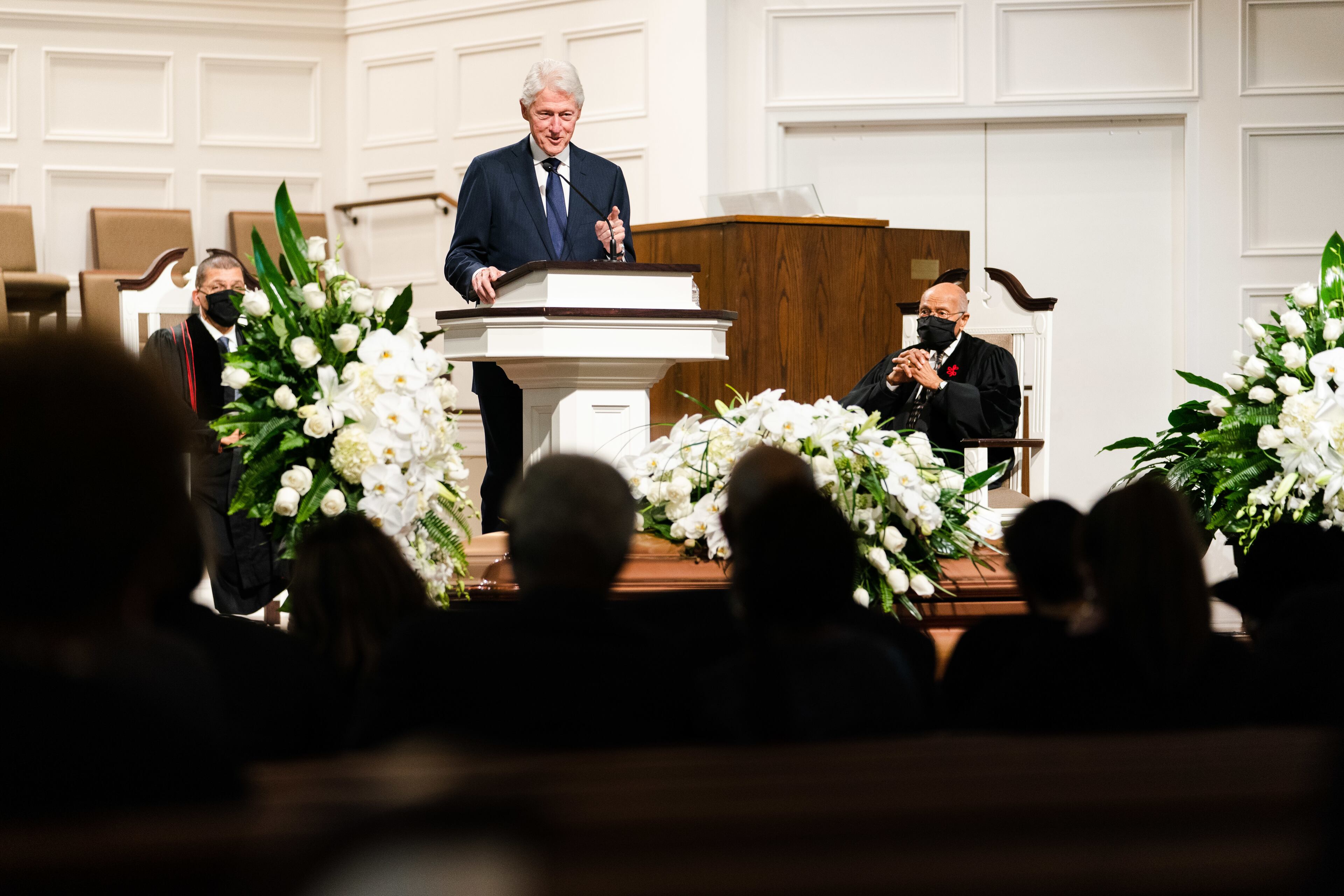Hank Aaron’s life was one of the great American journeys
His was an American story, one of the greatest American stories. He was born in Mobile, Ala., the third of eight children. His dad drove a truck and worked at the shipyard. To simulate baseball, for which his family could afford no gear, the young Henry Louis Aaron tossed up bottle caps and hit them with a stick.
The home in which he grew up has since been moved from its Toulminville neighborhood and restored as a museum alongside Hank Aaron Stadium, a minor-league ballpark in Mobile. A Kentuckian named Lincoln had his log cabin. Aaron had the three-room house – later expanded to seven rooms – his dad built.
Aaron’s time on this Earth reached its end Friday. His funeral was held Wednesday at Friendship Baptist Church. The service was aired on local and national television. Its eulogists included a former mayor of Atlanta, a former commissioner of baseball, plus the 39th (via remote) and the 42nd president of these United States (in person).
From a town so Southern it nuzzles up to the Gulf of Mexico to one of the most famous people in this whole wide world: That was Hank Aaron’s journey, an American journey that transcended continents and hemispheres. At 9:07 p.m. April 8, 1974, he hit a 1-0 fastball off Al Downing over the fence in left-center at Atlanta Stadium. Aaron is gone at 86; that moment lives forever. The story of his life will live forever.
“A candle in the dark,” the Rev. Dr. Otis Moss called Aaron, whose athletic grace made him famous, whose personal grace made him more than just a good ballplayer. It was his American story that trumped a great American icon. When Japanese soldiers charged American GIs in World War II, they would yell a naughty suggestion regarding Babe Ruth. There was nothing naughty in what Aaron did to the Babe’s greatest record. A Black man from Alabama hit more home runs than the white guy born in the Pigtown section of Baltimore. Fair and square. An American record, broken the American way.
In a taped eulogy, the TV announcer Bob Costas mentioned that Aaron’s lodestar was Jackie Robinson. “He skipped school to watch him speak,” Costas said, “and he climbed a tree to watch him play.” Aaron’s journey in baseball began to take flight when he played for the Indianapolis Clowns of the Negro Leagues. (He hit five homers with Indy, so that makes 760 all told.) Then to the majors and the Milwaukee Braves. Then to Atlanta, the first city in the Deep South with a big-league club. Then to 715 and beyond.
There can be no separating the man from the moment, but the man’s life was more than a moment. “Respect rose to reverence,” Costas said, regarding Aaron’s handling of the seamy subplot of the great chase. For no reason other than the color of his skin, Aaron drew hate mail. Said the Rev. Andrew Young: “He faced the evil of (his) times without fear.”
For Aaron, there was life after 715, a rich and full existence. He opened businesses. He became a philanthropist. He was viewed, both inside and outside baseball, as a statesman. Clinton noted that “you couldn’t get Hank Aaron to brag about anything – except that (his endorsement in 1992) carried Georgia for me by 13,000 votes.”
The record changed Aaron’s life. It didn’t change Aaron. As Braves chairman Terry McGuirk said Wednesday, “so humble and so self-effacing.” Aaron used the soft power of celebrity to better the lives of Black Americans. From Tom Morehead, his former business partner in BMW dealerships: “He wanted the industry to change its complexion.”

Clinton read from Galatians and called Aaron’s 86 years “a tribute to a consistent life of doing and being.” He also said: “Hank believed in closing the racial divide not by tearing anybody down but by building people up.”
When Clinton was president, Aaron and his wife, Billye, spent the night at the White House. “It seemed like the most natural thing in the world,” Clinton said, as if the thought of an underprivileged child from Mobile being welcomed at 1600 Pennsylvania Ave. happens all the time. But it happened with Hank Aaron, whose American story unfolded at a time when we needed such a story – not that we don’t need it even more today.
Said Young: “Hank ran the hell out of that race.”
Said Clinton: “His life was one long home run, and now he has rounded the bases.”
Owing to the pandemic, “Amazing Grace” was not sung at Hank Aaron’s funeral. It was, however, played by an organist. Its third verse could describe the American journey that began in Mobile on Feb. 5, 1934, and concluded with a gathering of the high and mighty on a winter’s day in downtown Atlanta. “‘Tis grace has brought me safe thus far,” the hymn goes, “and grace will lead me home.”

